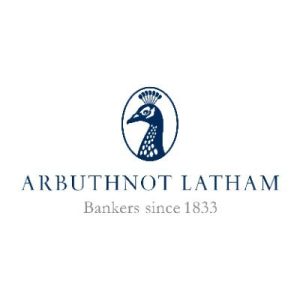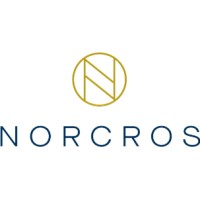Premier Miton Investors plc (LON:PMI) Head of Equities and Fund Manager of the Diverse Income Trust plc (LON:DIVI) Gervais Williams caught up with DirectorsTalk to discuss current events and the effects on small-caps.
Q1: The Chancellor’s Spring budget has increased the rate of Corporation Tax paid on company profits over £250,000 to 25% from 2023. Should the government be doing more to get behind these smaller companies that are entrepreneurial and driving innovation and future employment?
A1: I would set this change in the Corporation Tax in the context of the two trends beyond Brexit.
The first is that the UK Government is much more dependent on success of the local economy including small, quoted companies than it was previously so I think there’s real alignment there.
I think the second point is that there’s greater political interest generally around the world in corporate development and I think there’s going to be more interest in companies which are losing employment than those that are generating employment including small, quoted companies.
So, actually, we feel these trends are quite helpful for the small, quoted company sector, particularly in the UK because a lot of these companies, when you give additional capital to many small companies, they do generate skilled employment. Being local businesses, they often generate domestic growth and they pay their local taxes.
If anything, there’s quite a lot of companies like Accrol Group Holdings plc (LON:ACRL) for example, which is a company which is in the toilet tissue sector, it’s been taking market share by offering a product with higher spec and a lower price via the supermarkets. It ran out of capacity last year and it acquired another which was under-utilised and it’s driving growth.
So, if you come back to the question about Corporation Tax rates, they may be diluting a bit of growth but many of these quoted companies are coming from what we consider to be overlooked valuations after the open-ended nature of Brexit. Most particularly, we think their prospects are improving beyond lockdown and if anything, we think Corporation Tax may dilute growth but we think the growth in the valuation is going to drive the returns.
Q2: A new report released on Tuesday proposed a couple of key changes to the UK listing regime. Will it have the desired effect of making the UK more attractive for listings?
A2: The interesting thing about the UK market compared with others is it’s actually a much broader range than others in terms of small and microcaps and most particularly, if anything, this really widens further. So, from that point of view, the UK could probably become one of the most wide range investment universes of all.
Stock markets with debts and difference, I would argue, could be really important in future because if global inflation does return and stop/go economic cycle does return, I think both may be patchier and that might be a real headwind for many of the mainstream multinationals. If you remember last year with the setback and the pandemic, UK dividends fell about 44% last year.
So, the great advantage of small, quoted is they can often survive better is choppy market conditions and the extra uncertainty sometimes allows them to actually thrive when they take advantage of weakness or companies pulling out.
So, although we noticed that small-caps at the bottom and that market’s s recovered, if anything, I think widening the investment universe will be quite good. The UK small-cap area, the FTSE Small-Cap Index, excluding investment companies, and the AIM All Share Index were both up about 70% from the bottom in March of last year and that’s somewhat ahead of things like NASDAQ, in certainly adjusted terms which was up about 50% or indeed the S&P500 which was up about 35% at the same time, all in Sterling adjusted terms.
So, we think the UK is pretty attractive already but we think this will actually allow the investment universe to widen a bit further.
Q3: We saw the 10 year US government bond prices fall this week increasing the yield from 1% to 1.5% percent. It seems to have sent jitters through the stock market, do you think investors need to worry?
A3: I think we need to take this in the context of what’s been happening over recent decades.
The nature if globalisation is it’s initiated a surge of low-cost deflating imports, which has held back CPI inflation for a generation but what’s been interesting about the recent period is that politicians have become more worried by their reliance on international supply lines, and they’re keener now to initiate greater local suppliers, even if that costs more. So, I think the inflationary downward pressures are frothing away a bit.
Most particularly, if we do get the start of renewed CPI inflation, bond yields rise and even interest rates may rise in time, then we feel that removal of a big asset price tailwind of rising valuations which has really dragged up the valuations of the stock markets and all other assets over the world. That, I think would be a really big issue for the mainstream stocks going forward.
In contrast, the prospects for quoted small-caps have always been more reliant on local conditions rather than world growth and younger businesses are often operating in more immature markets. So, they have better scope to actually step in when others have exited.
The key point, I think, is prior to globalisation, quoted companies delivered returns well ahead of inflation, this is back in the 60’s, 70’s and 80’s, whereas often the mainstream companies didn’t. If inflation odes become a persistent problem, we think this issue is going to become really important.
So, effectively, this may the start of a new tailwind for small-caps and it could be an important new trend.
Q4: Generally, the UK has tended to underperform others like the US for decades. Surely the prospects for the UK economy are not very different for the US or other developed economies? Does change to global inflation make any real difference to UK investors?
A4: Well, yes it would in my view. Whilst the US stock market is dominated by long-duration assets, companies that are forecast to grow rapidly in future years, the UK stock exchange is dominated by short duration stocks , slower growth stocks that tend to generate plentiful cash surpluses along the way, that they often pay out in dividends.
If global inflationary pressures are persistent then we expect short-dated bonds to outperform long-dated bonds, and in a similar way to short-duration equities (i.e., the UK) to outperform long-duration equities (i.e., the US). And given that the long-duration assets have outperformed short-duration assets for a decade or so, there is an awful lot of catching up to be done. Clearly it won’t just come in a single step, there will be zigs and zags along the way.
The new trend, if it is a trend, has only just begun but such a trend could surprise on the upside in terms of scale and duration.
Premier Miton Investors is a UK asset management group with a focus on delivering good investment outcomes for investors through relevant products and active management across our range of investment strategies.










